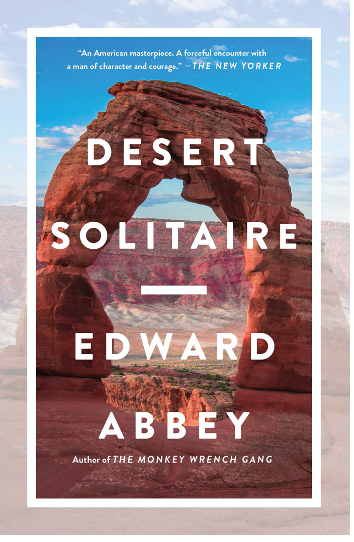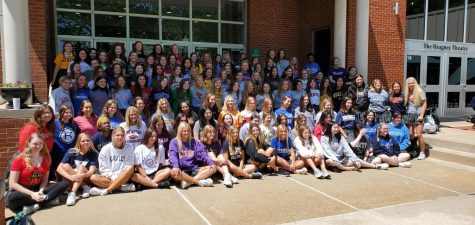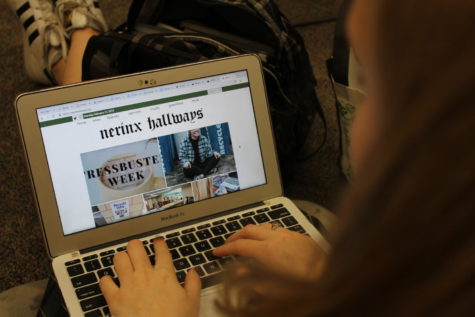A Review of “Desert Solitaire”

Edward Abbey’s Desert Solitaire (published by Simon & Schuster)
“Despite its clarity and simplicity, however, the desert wears at the same time, paradoxically, a veil of mystery. Motionless and silent it evokes in us an elusive hint of something unknown, unknowable, about to be revealed,” (Abbey 301). I feel as if these two sentences are able to capture the essence of Desert Solitaire, a book by Edward Abbey. While Abbey produces, at times, radical ideas about the National Park system he also provides within the same book, a poetic description of the desert during his stay as a park ranger. Abbey provides beautiful observations on silence and solitaire, elegiac descriptions of wilderness around him, and bold, obdurate opinions on the National Park system.
The best part of this book is Abbey’s observations on silence in the wilderness. “In the heat and stillness nothing moves, nothing stirs. The silence is complete,” (214). Abbey often talks about complete silence. In the first half of the book, he debates with himself whether he likes it or not and whether it is even good for humans to go so long in silence. While in the second half he decides that he doesn’t care whether or not it is healthy, only that he needs silence and only in its completeness. “After the droning mechanical grind of the long pull up the mountain the silence of the forest seems startling, deafening, most welcome. (…) As my ears and nerves recover from the long oppression of the drive I can hear the flutter of aspen leaves above my head and the ripple of running water not far away,” (276). In the book, Abbey states that silence cannot be complete without the gentle sounds of only nature. Here we get a glimpse of Abbey’s, almost comical, hate of motor vehicles as well.
Another favored topic of Abbey’s is solitaire, as the title suggests. “There are times when solitaire becomes solitary, an entirely different game, a prison term, and the inside of the skull as confining and unbearable as the interior of the house-trailer on a hot day,” (119). This is from the chapter Cowboys and Indians Part II, in the first half of this chapter Abbey goes back and forth with himself between society and solitude. Here, Abbey admits to feeling trapped within his mind as much as in his house, both a prison of his own making. He has almost no responsibility, yet he locks himself away in his house. He has a seemingly endless expense of desert to explore, more than he could do in a lifetime, yet he is sitting in his house-trailer thinking, thinking, thinking. To fix this problem of his he said it helps to eat dinner outside, that in doing so it invites him to “(…) contemplate a far larger world, one which extends into a past and into a future without any limits known to the human kind,” (121). In eating outside he is able to temporarily forget society and contemplate the paradox of nature.
Another strength that Abbey uses is the description of the wilderness around him. In each sentence, he uses amazing similes and metaphors to paint an amazing picture of his surroundings. “I could see the blue of the sky between his ribs, through the eye sockets of his skull. Dry, odorless, still and silent, he looked like the idea – without the substance – of a horse,” (186). This is a description Abbey wrote of Moon-Eyes, the wild horse he wanted to track down. This is only part of the description of Moon-Eyes, with each sentence and phrase of the chapter about Moon-Eyes one can see more and more clearly the horse until it seems as if he is standing right in front of me. Another favored quote is, “Sunsets each evening that test a man’s credulity-great gory improvisations in scarlet and gold that remind me of nothing so much as God’s own celestial pizza pies,” (333). When an author is trying to describe something, this is the kind of sentence he hopes to create, one that is so poetic yet shows exactly what they are seeing, and not taking up an entire page. Abbey does an amazing job at showing you exactly what he means without using whole pages, it was one of the best parts of the book.
Abbey has harsh views on the National Park system. “This case being, why is the Park Service generally so anxious to accommodate that other crowd, the indolent millions born on wheels and suckled on gasoline, who expect and demand paved highways to lead them in comfort, ease and safety into every nook and corner of the national parks?” (60-61). The “indolent millions” are the people who pay for the parks, they are essentially the ones that keep the parks open, although it is true that there should not be roads going through the park. People should get out of their cars and walk the park, to be able to fully enjoy the sounds, sight, and smell of nature.
“Social justice in this country means social surgery – carving some of the fat off the wide bottom of the American middle class,” (136). Really? The American middle class is the backbone of this country already. To carve out some of the middle class means more poverty for those just scraping by. The American middle class is not just single guys who have enough money to not work and live in the middle of nowhere for months on end. The American middle class is four children, two working parents, and the constant hope for assimilation into the rich. Social justice in this country needs to come from the top 1%, those who can pay off all student debt in this country and still come away with millions.
Nonetheless, this book is still a wonderful read. It was an exciting thought-provoking read, perfect for nature lovers. Abbey’s writing was so beautiful, it at times read like poetry. I’ll leave you with just one more quote from Abbey’s book, “(…) There is no mystery; there is only paradox, the incontrovertible union of contradictory truths,” (Abbey 124).
Book Cited:
Abbey, E. (1990). Desert Solitaire a Season in the Wilderness. New York City, New York: Ballantine Books.






